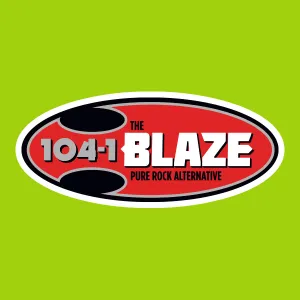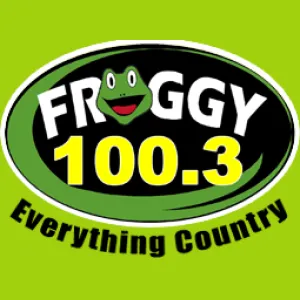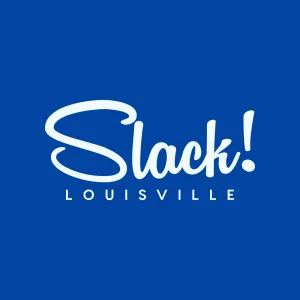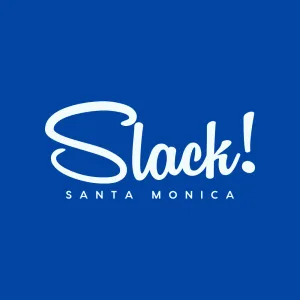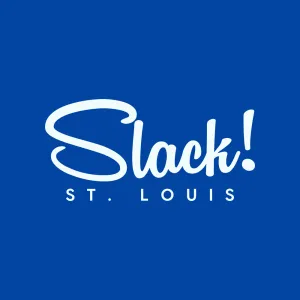Radio WXTB-FM (98 Rocks the Bay!)
0
Condividere
0
0
[
Ascolta dal vivo
]WXTB (97.9 FM) — branded 98 Rock — is a commercial radio station in the Tampa, Florida area. However the station can be heard as far north as Ocala and Williston due to its strong signal. The station plays a Album Oriented Rock/Active rock format that mixes music from the Modern Rock and Heavy metal genres and bands such as Linkin Park, Korn, Disturbed, System Of A Down and others.
WXTB signed on in 1973 as WQXM-FM, a sister station to Plough, Inc.'s WSUN AM 620. In 1977, the station adopted an Album Oriented Rock (AOR) format, along wit... Vedi altro
Clearwater FM|97.9
813-832-1000
[email protected]
50 EAST RIVERCENTER BLVD, SUITE 1200, Covington, KY41011
http://www.98rock.com
Visualizzazioni:
9Stazioni radio consigliate:
WXTB (97.9 FM) — branded 98 Rock — is a commercial radio station in the Tampa, Florida area. However the station can be heard as far north as Ocala and Williston due to its strong signal. The station plays a Album Oriented Rock/Active rock format that mixes music from the Modern Rock and Heavy metal genres and bands such as Linkin Park, Korn, Disturbed, System Of A Down and others.
WXTB signed on in 1973 as WQXM-FM, a sister station to Plough, Inc.'s WSUN AM 620. In 1977, the station adopted an Album Oriented Rock (AOR) format, along with its new moniker, 98ROCK. With studios and transmitter located on Starkey Road in unincorporated Pinellas County (now part of the city of Seminole), WQXM joined the growing Tampa Bay radio market, which included ratings leaders WLCY 1380AM and WRBQ Q105. WQXM quickly rose to the top of the music scene, riding the wave of arena rock based stations driven by Lee Abrams "Superstars" format. Early on-air personalities included area legends such as Russ Albums and Nick Van Cleve.
With the aggressive rise of WYNF's "Florida's Best Rock 95FM" in 1981, WQXM changed program directors. New PD George Hawris felt that rather than pursue the crowded rock demographic, the station should jump on the new wave/new romantics bandwagon. The station changed format in 1982, becoming "the best NuRock, 98ROCK". A huge slide in ratings resulted as listeners defected to WYNF, which would soon rename itself "95YNF".
Failing to stem the tide, WQXM underwent another format change. Despite the fact that Top 40 was over-represented in the Tampa Bay area radio market with competition such as ratings leader WRBQ, WQXM became Top 40 outlet WZNE "Z98" in 1983.
Poor marketing and weak branding (sample billboard slogan: "Four in a Row... For Ever"), along with poor Arbitron numbers resulted in yet another change of format. In January 1986, WZNE-FM changed its call letters to WKRL-FM, and new owner Sandusky Broadcasting relocated the studios to an office complex in Feather Sound outside St. Petersburg and relaunched as Classic Rock 97.9. Despite many personnel changes and promotional efforts, WKRL 97.9 rarely achieved notable Arbitron results. A rebranding effort occurred in June 1988, as the station was renamed its prior moniker, 98ROCK. This marked a return to the iconic and popular 98ROCK block-letter branding that the station used in the late 1970s, which had also been used by quite a few other stations across the country such as 96ROCK (WKLS) in Atlanta, Georgia.
The greatest effort was spent trying to crack the Morning Drive numbers for the 18-34 male age group, dominated at the time by Ron Diaz and Ron Bennington, aka Ron and Ron of WYNF, then owned by CBS Radio. Management eventually settled on the duo of Brian Smith and Bruce Barber, a team that had achieved some success at stations in northern markets. Despite being very approachable by fans, the team seemed unable to break into the Tampa Bay market and languished in 10th place behind much smaller stations with talk or beautiful music formats.
The classic rock format lasted until late December, 1989 when the signal went silent briefly, and then Led Zeppelin's "Stairway to Heaven" began playing in constant rotation, eventually lasting for 24 hours. Finally, the repetition gave way to the announcement on New Year's Eve 1989 that 98ROCK, now controlled by Great American Broadcasting, would be the first all-Led Zeppelin format station in the country, playing the band's entire catalog in its entirety as well as solo efforts by the bandmates and their other music-related projects. WKRL received national coverage from MTV to CBS to many other outlets, and was the first station to get worldwide coverage for a true "artist flip", where a broadcaster based its entire business on one group or solo artist.
Two weeks unfolded with conjecture from various news outlets as to how long this format could last, given that all studio Zeppelin recordings at the time added up to less than 10 hours of continuous play. The station responded over the following week by adding a few classic acts such as the Rolling Stones and Van Halen. With the bells of AC/DC's "Hells Bells" playing in the background, a major announcement came at noon on January 18, 1990 that the station would be changing its call letters to WXTB, and the station would be relaunched as "98ROCK, Pure Rock and Roll".
New Program Director Greg Mull, brought in from K-ROCK (WRXK-FM) in Fort Myers to replace the outgoing Beau Raines, immediately reorganized the On air personality list. Brian Smith and Bruce Barber, morning DJ's who trailed in the ratings, were released and replaced by Tom "Sea Bass" Sebastian, who stunted his first few weeks as "Buck Maui", and was also the voice of the legendary character 'Big Chief Meteorologist'. Ted Canorazzi took the name "Ted Kamikaze" and assumed the 10 am - 2 pm slot. Scott Legere and Austin Keyes kept their afternoon and evening spots, respectively. Kelli Kasey and "Big Rig" Ron Michaels rounded out the schedule.
With two stations now vying for the all important rock demographic, the inevitable conflicts broke out between WXTB and WYNF.
The WYNF staff used connections built up over the past few years as well as the power of parent company CBS Radio to ensure that all concerts were introduced by WYNF personalities. Even at shows that 98ROCK promoted exclusively, invariably a popular WYNF personality would take the stage to kickoff the concert. This tactic was exposed as early as the February 1990 Blondie/Tears for Fears concert at the Florida Suncoast Dome (now Tropicana Field) in St. Petersburg. Since 98ROCK had gone to the new format just one month earlier, this concert was the first show available to WXTB as a promotional effort. Despite neither band being on WYNF's extensive playlist, WYNF's Charlie Logan arrived on stage to kick off the show.
An ad campaign was then launched at WYNF stating that the station had been in the Tampa Bay area for 13 years and would be there long after everyone else was gone. What the campaign failed to mention was that the only thing that had lasted for 13 years was the call letters "WYNF", and that they had spanned multiple owners, managers, and program formats, beginning with the disco/pop oriented "Y95" in the mid-late 1970s. The response from 98ROCK was an innovative billboard campaign featuring a 95YNF banner that had most of its center ripped out to expose a 98ROCK billboard underneath, getting the message across that WYNF's time had passed.
After initially struggling to establish promotional relationships that had been dominated by WYNF, 98ROCK seized the initiative. Unable to capture major venues for branding and promotional efforts, it created its own venue in a cow pasture in Zephyrhills. In late 1990, 98ROCK launched what would turn into a 15 year tradition - the "Livestock" annual rock festival. A tongue-in-cheek portmanteau of "Live Aid" and "Woodstock", each weekend-long Livestock event brought well known national acts such as Soundgarden and Tesla together with lesser-known bands hoping for a chance at success. In keeping with the charitable spirit of Live Aid and other rock benefits, bands donated their performance time and a portion of the gate proceeds were donated to charities such as Greenpeace.
As the station rose in the ratings books, 98ROCK took over promotional opportunities that WYNF once controlled, such as The Rock-It Club and Killian's Rock Cafe. Meanwhile, WYNF slowly imploded. Morning slot stars Ron&Ron, were losing ground to the popular Sea Bass, and were in the early months of a syndication deal that spread their brand of humor across the state of Florida into Orlando, Jacksonville, and Miami. They tried to renegotiate their contract for much higher compensation but their tactic backfired as CBS decided not to renew their contract. The syndication deal fell apart, and soon Ron&Ron were gone from wYNF. Just a few months later, CBS exercised a "scorched earth" policy and buried WYNF's format permanently. Prior to selling their Tampa Bay area stations to Cox Radio, CBS moved their Adult Contemporary station WWRM 107.3 (WARM 107FM) to WYNF's former 94.9 frequency, creating WARM 94.9FM. The original WYNF call letters went to an obscure lower-powered Sarasota station. (The call letters are now used by a radio station in Augusta, Georgia owned by WXTB's current owners, Clear Channel Communications.)
With 95YNF out of the way, 98ROCK became a ratings success. It all but abandoned earlier "classic" album rock and aggressively exposed the Seattle bands in 1991 early on and the nu-metal bands of the mid to late 1990s before other stations across North America outside of those bands' home bases caught on. This "Active Rock" format and style soon launched hundreds of stations across the United States and North America in the coming years and even affect the playlists of modern rock stations that were becoming hugely popular in the mid-1990s. WXTB still continues its current active rock programming to this day and since December 1992 has hosted the Tampa Bay Children's Home auction and Pay for Play weekends (taking over for the defunct 95WYNF)-which auctions off rock memorabilia for donations and receives funds from donors in exchange for playing a wide variety of music requests (including those out of format).
In 2000, the station moved its studios from Feather Sound Corporate Center to new owner Clear Channel's broadcast complex in southwest Tampa, Florida in an attempt to consolidate overall operations of Clear Channel stations in the area.
On January 18, 2010 at noon, 98ROCK replayed its format launch from 20 years earlier, including the final countdown in which soundbites from phone calls, many of which trashed WYNF, were played. The first four songs played after the launch ("Hells Bells" by AC/DC, "Kickstart My Heart" by Mötley Crüe, "Paradise City" by Guns n' Roses, and "Hot for Teacher" by Van Halen) were played again in tribute to the current format's 20th anniversary, along with original bumpers.
The station covers the Tampa Bay market as a whole. However the station also covers areas of Levy County and Marion County, part of the Gainesville-Ocala Radio Market. 98ROCK is the only Rock Station Covering The Villages, Ocala, and other areas of Southern Marion County since WRUF-FM out of Gainesville switched to Country as of October 2010. There is another rock station, 100.5 WHHZ, out of Gainesville, but even that station has difficulty reaching Ocala and most areas of Marion County.
WXTB signed on in 1973 as WQXM-FM, a sister station to Plough, Inc.'s WSUN AM 620. In 1977, the station adopted an Album Oriented Rock (AOR) format, along with its new moniker, 98ROCK. With studios and transmitter located on Starkey Road in unincorporated Pinellas County (now part of the city of Seminole), WQXM joined the growing Tampa Bay radio market, which included ratings leaders WLCY 1380AM and WRBQ Q105. WQXM quickly rose to the top of the music scene, riding the wave of arena rock based stations driven by Lee Abrams "Superstars" format. Early on-air personalities included area legends such as Russ Albums and Nick Van Cleve.
With the aggressive rise of WYNF's "Florida's Best Rock 95FM" in 1981, WQXM changed program directors. New PD George Hawris felt that rather than pursue the crowded rock demographic, the station should jump on the new wave/new romantics bandwagon. The station changed format in 1982, becoming "the best NuRock, 98ROCK". A huge slide in ratings resulted as listeners defected to WYNF, which would soon rename itself "95YNF".
Failing to stem the tide, WQXM underwent another format change. Despite the fact that Top 40 was over-represented in the Tampa Bay area radio market with competition such as ratings leader WRBQ, WQXM became Top 40 outlet WZNE "Z98" in 1983.
Poor marketing and weak branding (sample billboard slogan: "Four in a Row... For Ever"), along with poor Arbitron numbers resulted in yet another change of format. In January 1986, WZNE-FM changed its call letters to WKRL-FM, and new owner Sandusky Broadcasting relocated the studios to an office complex in Feather Sound outside St. Petersburg and relaunched as Classic Rock 97.9. Despite many personnel changes and promotional efforts, WKRL 97.9 rarely achieved notable Arbitron results. A rebranding effort occurred in June 1988, as the station was renamed its prior moniker, 98ROCK. This marked a return to the iconic and popular 98ROCK block-letter branding that the station used in the late 1970s, which had also been used by quite a few other stations across the country such as 96ROCK (WKLS) in Atlanta, Georgia.
The greatest effort was spent trying to crack the Morning Drive numbers for the 18-34 male age group, dominated at the time by Ron Diaz and Ron Bennington, aka Ron and Ron of WYNF, then owned by CBS Radio. Management eventually settled on the duo of Brian Smith and Bruce Barber, a team that had achieved some success at stations in northern markets. Despite being very approachable by fans, the team seemed unable to break into the Tampa Bay market and languished in 10th place behind much smaller stations with talk or beautiful music formats.
The classic rock format lasted until late December, 1989 when the signal went silent briefly, and then Led Zeppelin's "Stairway to Heaven" began playing in constant rotation, eventually lasting for 24 hours. Finally, the repetition gave way to the announcement on New Year's Eve 1989 that 98ROCK, now controlled by Great American Broadcasting, would be the first all-Led Zeppelin format station in the country, playing the band's entire catalog in its entirety as well as solo efforts by the bandmates and their other music-related projects. WKRL received national coverage from MTV to CBS to many other outlets, and was the first station to get worldwide coverage for a true "artist flip", where a broadcaster based its entire business on one group or solo artist.
Two weeks unfolded with conjecture from various news outlets as to how long this format could last, given that all studio Zeppelin recordings at the time added up to less than 10 hours of continuous play. The station responded over the following week by adding a few classic acts such as the Rolling Stones and Van Halen. With the bells of AC/DC's "Hells Bells" playing in the background, a major announcement came at noon on January 18, 1990 that the station would be changing its call letters to WXTB, and the station would be relaunched as "98ROCK, Pure Rock and Roll".
New Program Director Greg Mull, brought in from K-ROCK (WRXK-FM) in Fort Myers to replace the outgoing Beau Raines, immediately reorganized the On air personality list. Brian Smith and Bruce Barber, morning DJ's who trailed in the ratings, were released and replaced by Tom "Sea Bass" Sebastian, who stunted his first few weeks as "Buck Maui", and was also the voice of the legendary character 'Big Chief Meteorologist'. Ted Canorazzi took the name "Ted Kamikaze" and assumed the 10 am - 2 pm slot. Scott Legere and Austin Keyes kept their afternoon and evening spots, respectively. Kelli Kasey and "Big Rig" Ron Michaels rounded out the schedule.
With two stations now vying for the all important rock demographic, the inevitable conflicts broke out between WXTB and WYNF.
The WYNF staff used connections built up over the past few years as well as the power of parent company CBS Radio to ensure that all concerts were introduced by WYNF personalities. Even at shows that 98ROCK promoted exclusively, invariably a popular WYNF personality would take the stage to kickoff the concert. This tactic was exposed as early as the February 1990 Blondie/Tears for Fears concert at the Florida Suncoast Dome (now Tropicana Field) in St. Petersburg. Since 98ROCK had gone to the new format just one month earlier, this concert was the first show available to WXTB as a promotional effort. Despite neither band being on WYNF's extensive playlist, WYNF's Charlie Logan arrived on stage to kick off the show.
An ad campaign was then launched at WYNF stating that the station had been in the Tampa Bay area for 13 years and would be there long after everyone else was gone. What the campaign failed to mention was that the only thing that had lasted for 13 years was the call letters "WYNF", and that they had spanned multiple owners, managers, and program formats, beginning with the disco/pop oriented "Y95" in the mid-late 1970s. The response from 98ROCK was an innovative billboard campaign featuring a 95YNF banner that had most of its center ripped out to expose a 98ROCK billboard underneath, getting the message across that WYNF's time had passed.
After initially struggling to establish promotional relationships that had been dominated by WYNF, 98ROCK seized the initiative. Unable to capture major venues for branding and promotional efforts, it created its own venue in a cow pasture in Zephyrhills. In late 1990, 98ROCK launched what would turn into a 15 year tradition - the "Livestock" annual rock festival. A tongue-in-cheek portmanteau of "Live Aid" and "Woodstock", each weekend-long Livestock event brought well known national acts such as Soundgarden and Tesla together with lesser-known bands hoping for a chance at success. In keeping with the charitable spirit of Live Aid and other rock benefits, bands donated their performance time and a portion of the gate proceeds were donated to charities such as Greenpeace.
As the station rose in the ratings books, 98ROCK took over promotional opportunities that WYNF once controlled, such as The Rock-It Club and Killian's Rock Cafe. Meanwhile, WYNF slowly imploded. Morning slot stars Ron&Ron, were losing ground to the popular Sea Bass, and were in the early months of a syndication deal that spread their brand of humor across the state of Florida into Orlando, Jacksonville, and Miami. They tried to renegotiate their contract for much higher compensation but their tactic backfired as CBS decided not to renew their contract. The syndication deal fell apart, and soon Ron&Ron were gone from wYNF. Just a few months later, CBS exercised a "scorched earth" policy and buried WYNF's format permanently. Prior to selling their Tampa Bay area stations to Cox Radio, CBS moved their Adult Contemporary station WWRM 107.3 (WARM 107FM) to WYNF's former 94.9 frequency, creating WARM 94.9FM. The original WYNF call letters went to an obscure lower-powered Sarasota station. (The call letters are now used by a radio station in Augusta, Georgia owned by WXTB's current owners, Clear Channel Communications.)
With 95YNF out of the way, 98ROCK became a ratings success. It all but abandoned earlier "classic" album rock and aggressively exposed the Seattle bands in 1991 early on and the nu-metal bands of the mid to late 1990s before other stations across North America outside of those bands' home bases caught on. This "Active Rock" format and style soon launched hundreds of stations across the United States and North America in the coming years and even affect the playlists of modern rock stations that were becoming hugely popular in the mid-1990s. WXTB still continues its current active rock programming to this day and since December 1992 has hosted the Tampa Bay Children's Home auction and Pay for Play weekends (taking over for the defunct 95WYNF)-which auctions off rock memorabilia for donations and receives funds from donors in exchange for playing a wide variety of music requests (including those out of format).
In 2000, the station moved its studios from Feather Sound Corporate Center to new owner Clear Channel's broadcast complex in southwest Tampa, Florida in an attempt to consolidate overall operations of Clear Channel stations in the area.
On January 18, 2010 at noon, 98ROCK replayed its format launch from 20 years earlier, including the final countdown in which soundbites from phone calls, many of which trashed WYNF, were played. The first four songs played after the launch ("Hells Bells" by AC/DC, "Kickstart My Heart" by Mötley Crüe, "Paradise City" by Guns n' Roses, and "Hot for Teacher" by Van Halen) were played again in tribute to the current format's 20th anniversary, along with original bumpers.
The station covers the Tampa Bay market as a whole. However the station also covers areas of Levy County and Marion County, part of the Gainesville-Ocala Radio Market. 98ROCK is the only Rock Station Covering The Villages, Ocala, and other areas of Southern Marion County since WRUF-FM out of Gainesville switched to Country as of October 2010. There is another rock station, 100.5 WHHZ, out of Gainesville, but even that station has difficulty reaching Ocala and most areas of Marion County.
© LogFM.com, 2009-2025 (2026-02-14,16:29:12)

